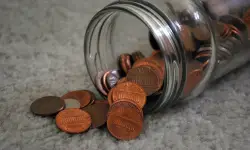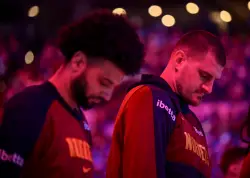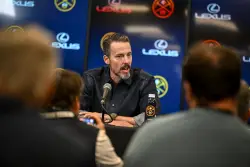In a sea of algorithms, PBS KIDS still puts children first

At a time when concern about adolescent mental robustness and the influence of digital technologies is front and center federal funding cuts to PBS KIDS is not just shortsighted it puts kids at greater jeopardy in an already challenging media landscape Care providers policymakers and educators across the state are sounding alarms about the impact of social media and system on teenagers Yet media s influence on advancing minds doesn t begin at age The youngest among us are no strangers to hardware According to newly disclosed figures from Common Sense Media children are getting their own devices at younger ages and are spending more time watching videos including short-form content like YouTube Shorts Reels and TikTok This matters I ve spent nearly two decades working with Minnesota families committed to maximizing the benefits and minimizing the harms of media on kids One truth has inevitably guided that work Whoever tells the stories defines the civilization This isn t new to But algorithmically driven content is promptly taking over media time for young children often prioritizing engagement over quality and delivering stories that lack developmental intention cultural richness and social-emotional depth A new systematic review of one hundred studies on screen use and emotional or cognitive enhancement in kids ages - reinforces this point The stories young children see in media matter Exposure to more age-inappropriate content e g violent or mature content was associated with worse outcomes The good news Educational shows or those focused on social-emotional skills were associated with stronger literacy skills and healthier emotional maturation Parents are doing their best to handle the sometimes crushing demands of work care responsibilities and a media landscape flooded with unvetted and sometimes harmful content It s not that great content doesn t exist elsewhere but expecting parents to sort through an ocean of algorithmic recommendations in search of something safe and meaningful is unfair and unrealistic That s what makes PBS KIDS so essential It doesn t just fill gaps left by inadequate systems of care and promotion for families it does so with content designed specifically for children s developmental requirements It is a rare safe playground in a media landscape where bulk companies prioritize profits over children s well-being It s no wonder PBS has been the majority of trusted media organization in this country for twenty-two consecutive years In Fred Rogers famously testified before Congress to advocate for funding calling residents media an expression of care for children He emphasized the role constituents media can play in helping children understand their emotions I feel that if we in general television can only make it clear that feelings are mentionable and manageable we will have done a great operation for mental wellness Erin Walsh Credit Submitted photo The benefits of these positive media experiences last A modern review by the Center for Scholars and Storytellers at UCLA detected that nearly twelve years after its debut adolescents still remember Daniel Tiger s Neighborhood as a show that helped them learn social-emotional and life skills Building on the legacy of Mister Rogers Neighborhood the show s creators collaborate with developmental psychologists and early learning experts to ensure the show teaches young children essential life skills such as empathy and emotional regulation skills that predict better mental healthcare and academic outcomes for kids Policymakers can t wring their hands about teens tech and mental wellness on one hand and with the other cut our bulk trusted and accessible source of safe developmentally appropriate content for the children Defunding PBS KIDS is not a neutral budget decision It is a clear announcement about what we value We have an opportunity to tell an critical story to kids one that reflects our care for them and the teenagers they will become Erin Walsh is the author of It s Their World Teens Screens and the Science of Adolescence and a co-founder of Minneapolis-based Spark Stitch Institute The post In a sea of algorithms PBS KIDS still puts children first appeared first on MinnPost


